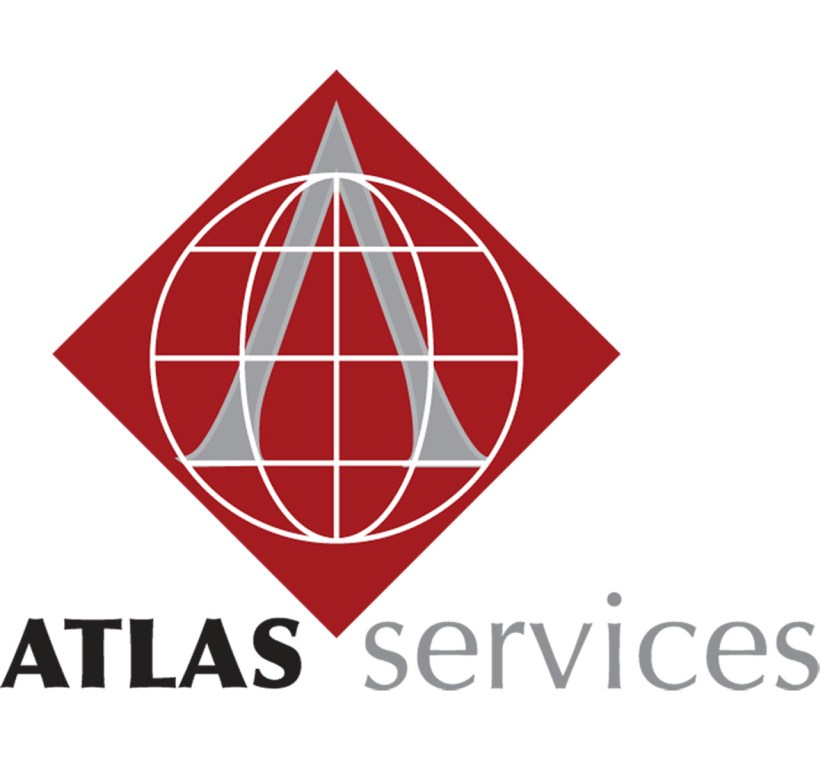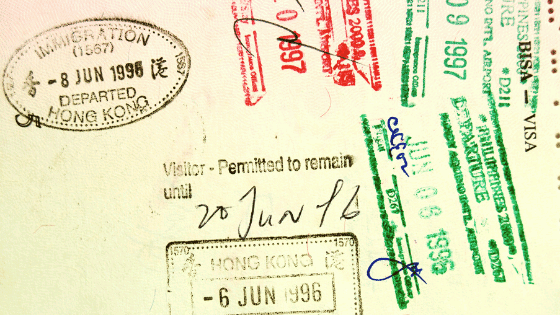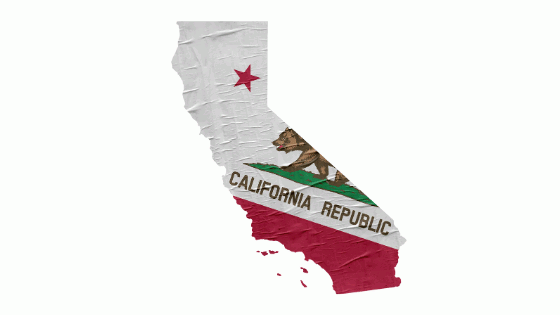
Help! I Need A Passport Fast. What Can I do?
August 26, 2019Living Overseas? Here’s Your Ultimate Checklist for Preparing Your Move Abroad
At first, the idea of living overseas can sound exciting (as it should be!). But as your travel date gets closer, you may start to feel anxious and downright stressed out. It doesn’t matter whether you’re moving for three months or more than a year. Preparing your move abroad will require careful planning.
You don’t want to find yourself on your plane ride ruminating over all the things you forgot to do. So, what can you do to make your move overseas a little less turbulent (pun intended)?
Set a Timeline for your Travel

One of the first things you’ll need is a calendar or organizational tool. The important thing is that you have a plan in writing. By having a checklist, you can quickly mark items off your list. It’s also a sure way that you don’t forget anything important.
The amount of time you set for yourself is up to you. It may depend on the length of time that you plan to live abroad. So if you need a month or a full year, be sure that it’s enough time to get it all done. It’s better to err on the side of caution and give yourself more time than you think you’ll need.
What should your Travel timeline Include?
- Research
- Applying for travel documents
- Finances
- Leave your affairs in order in your home country
- Packing
Think of all these categories as your projects, and list every task under its corresponding category.
Set time aside to write your plan. It doesn’t have to be perfect. You’ll probably add and make changes as you move along. It is just a document you can refer to as you work on preparing for your move.
Ready? Let’s get into it.
Research Your Destination Country

Assuming you’ve already determined where you’ll live, you’ll want to research your destination country thoroughly. Keep in mind that visiting a country for a week or two is not the same as living there long term. Your research needs to go beyond planning a basic itinerary. While it should include things like language, culture, and local customs, it also needs to include some of the more mundane but essential necessities.
What should your research include?
How Will You Get Around?
Do you plan to drive or take public transportation? What are the transportation options?
Living in an urban area with easy access to public transportation is not the same as living in a rural area with few roads. Also, keep in mind that not all urban areas are the same. Some cities like Tokyo and Mexico City are sprawling metropolises spanning thousands of square kilometers. When researching transportation, consider the following:
Do they have convenient rail systems?
Are there ride sharing options available like Uber and Lyft?
How much will you need for transportation costs?
If you plan to drive, what are the driving laws, and will you have to get a license?
Where Will You Live?
Research your housing options and the costs. Housing would also include finding information specific to the neighborhood. Is it a quiet neighborhood or a raging party town? Is it safe?
You’ll want to know as much information about housing costs and neighborhoods well ahead of time. While it’s true that living abroad means stepping out of your comfort zone, most cities have a range of areas, some of which are better suited for our lifestyle.
Also, find out if there’s a local expat community. Not only is connecting with expats a way to meet people, but it’s also a good support system to have as they faced the same challenges you will likely face.
Choosing the right place to live and meeting the right people will enhance the quality of life in your new country.
Health Care
What happens if you get sick or injured while living abroad? Researching also includes planning for the unexpected. Healthcare around the world may be different from your country of origin. It can also become a tremendous expense if you get caught unprepared.
It’s essential that you speak with your current health insurer and find out what their coverage options are while traveling abroad. It’s possible you may need to purchase additional insurance. If you do, research insurers and shop around. Make sure the company you select has coverage for all of your current healthcare needs. Make the most out of your experience abroad by staying healthy and having peace of mind that you have access to medical care.
Apply for Your Required Travel Documents
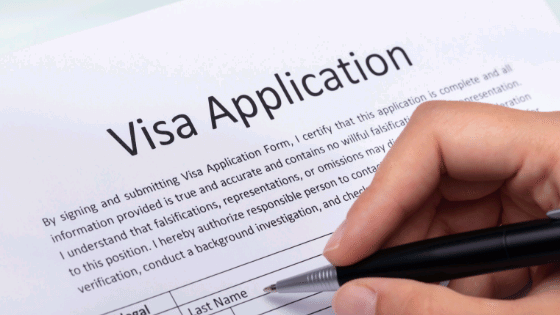
Passport
Passport processing times can range on many circumstances, including seasonality and the number of applications that need to be processed. On average, standard passport processing times can be between 4 to 6 weeks, but sometimes it can take as long as 8 or 9 weeks. Should you find yourself in a time crunch, certain agencies can help you with getting an expedited passport.
Whether you’re applying for a new, renewal, or child passport, find out what documents you need to submit with your application. Each type will have specific requirements.
If your destination country requires a visa, you will need a valid passport before you can apply for one.
Visa
Find out whether your new country requires a visa for your stay. If so, you’ll also need to know the visa application procedures, including the type of documentation you need to submit.
While some countries require no visa for U.S. Citizens, others will have more specific requirements. And depending on the purpose of your travel, you’ll also need to know if you need to apply for a tourist or business visa.
You can visit your destination country’s website for information, or visit our visa services page and search for your country to learn about its requirements.
Get Your Finances In Order

Determine how much money you’ll need to cover not just basic travel expenses like a plane ticket and housing, but also miscellaneous items like moving costs, insurance premiums, passport and visa fees, as well as access to money while abroad.
Is the purpose of your move for pleasure or business? If it’s for pleasure, what sources of income will you depend on while abroad? Do you plan to find work while you live internationally, or do you have enough saved up?
If the purpose of your travel is for business, will there be any changes in your salary? For example, consider how exchange rates can affect your regular salary and if that amount will be sufficient to cover the cost of living. If it’s not enough, you might want to discuss this with your employer. Costs of living around the world can range from dirt cheap to $20 for a fast food meal.
In either case, whether you plan to work there or live off of savings, always budget for more than you think you’ll need.
Notify Important People and Institutions

Just because you’re moving abroad does not mean you’re not accountable for the things you leave behind at home. Of course, we are talking about your debts and other monthly payments.
What types of bills do you need to cover at home while you’re living abroad?
The list is specific to you, but will most likely include things like mortgages, car payments, utility bills, and other services you pay for monthly. Plan for how you’ll have those expenses covered while you’re gone.
Pets
Are you leaving them behind with someone you trust, or are you taking them with you? If so, you’ll have to arrange travel for your pet, including having all the proper vaccinations.
Cell Phone Service
When visiting a foreign country for a short time, your cell phone provider usually has available international calling plans for your stay. However, for more extended stays of several months or more, you’ll need to know if your domestic carrier’s international plans will meet your needs for the long run.
International calling plans can get very expensive after several weeks. If you’re paying, let’s say, 5 cents for every text message you receive and send, that will quickly add up. And then there are other charges like roaming.
Consider whether you should obtain cell phone service from a local provider in your new country. This could end up saving you money, and you might end up with better service. Weigh the pros and cons of keeping your current plan or applying for a new one at your destination country.
Bank Accounts
Unlike cell phone service, your banking accounts at home shouldn’t require too many changes. However, you’ll need to notify your bank which country (or countries) you plan on visiting and the dates of your travel. You will also need to authorize your debit and credit cards for international use.
If you plan on living there for a while, then it would make sense to consider opening up a bank account at your destination. Don’t forget that using your cards abroad will result in international transaction costs. Just like cell service, frequent international charges to use your cards and cell phone can add up. Therefore, think about whether it’s necessary to open up a separate bank account so you can avoid those charges.
Your Friends and Family
Provide your family members and those closest to you with important information, such as:
- Your address
- Phone number
- Leave a copy of your passport with them
- Contact information for the American Consulate (or consulate for your country of origin)
- Emergency contact number while abroad (such as a neighbor)
Start Packing
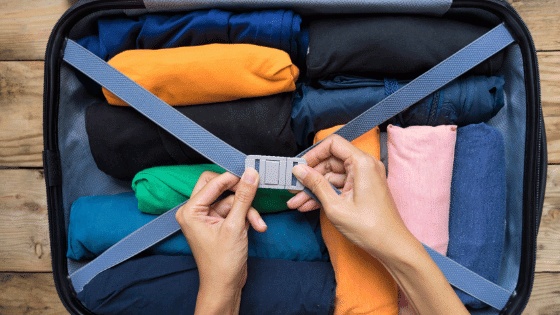
As your departure date gets closer, you’ll need to start packing at some point. You’ll have to figure out what items you’ll need to take with you as well as what items you can purchase abroad. When packing, try to stick with the absolute essentials and items which will be difficult to find overseas.
Packing also depends on your length of stay. Will you need to ship certain items to your new home like furniture? If so, you’ll have to look into international moving companies for help.
Bon Voyage!

Now that you’re packed and ready for your move, it’s time to say your goodbyes and begin your adventures. Preparing in advance for your big move will ease the workload and let you focus on the adventure that lies ahead.

